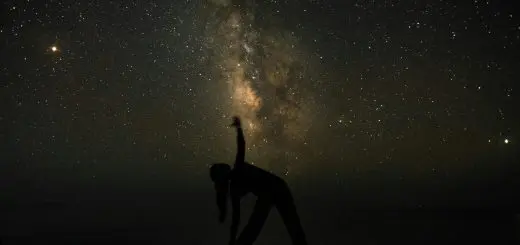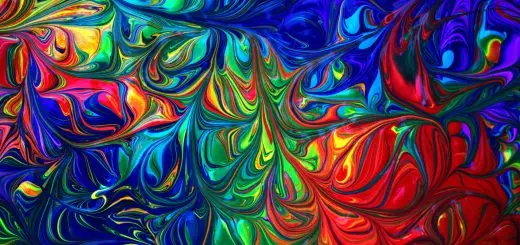Whiro: Maori God of Darkness and Malevolence

Looking for more amazing products? Check out our online store and explore our collection here! Happy shopping!
Before diving in, please note: This post is for informational purposes only. If you’d like to know more about how we approach topics, feel free to check out our friendly Disclaimer Page.
Hey there, amazing readers! 
We’re committed to delivering quality posts, and your support (even just sticking around despite the ads) means everything to us. So, bear with us, and thanks for helping us keep the good vibes rolling. Now, on to the fun stuff!
TRANSLATE BUTTON AT THE END OF THE ARTICLE
Overview: Whiro, the Maori God of Darkness and Malevolence
Whiro, a prominent figure in Maori mythology, is known as the god of darkness and malevolence.
He represents chaos, evil, and all the negative aspects of life.
Whiro is believed to reside in the underworld, where he reigns over darkness and seeks to disrupt the harmony and balance of the world.
This article will delve into the origins and mythology surrounding Whiro, exploring his symbolism, domain, family connections, rituals, and his role in creation.
Additionally, it will examine Whiro’s influence on humans and how he is perceived in contemporary society.
Origins and Mythology: Unraveling the Legends of Whiro
In Maori mythology, Whiro is considered to be one of the children of Rangi (the Sky Father) and Papa (the Earth Mother).
According to the creation story, Whiro emerged from the primordial darkness along with his siblings, who represented various natural elements.
Whiro, however, was different from his siblings as he personified all that was evil and malevolent.
He was often associated with death, disease, and misfortune.
Symbolism and Representations: Understanding Whiro’s Depictions
Whiro is typically depicted as a malevolent being with a grotesque appearance.
He is portrayed with a distorted face, often characterized by sharp teeth, fiery eyes, and a menacing grin.
Whiro is commonly shown wearing a cloak made from the feathers of the albatross, symbolizing his connection to darkness and the underworld.
He is also associated with the color black, which represents the absence of light and purity.
Whiro’s Domain: Exploring the Realm of Darkness and Chaos
Whiro’s domain is believed to be the underworld, a realm of darkness and chaos.
It is a place where the spirits of the deceased reside and where evil is said to originate.
In Maori cosmology, the underworld is considered the opposite of the celestial realms inhabited by the gods and ancestors.
Whiro’s presence in the underworld is seen as a constant threat to the harmony and balance of the natural world.
Whiro’s Family Connections: Relationships Among the Gods
Whiro’s family connections are an essential aspect of Maori mythology.
He is often depicted as a rival of his brother Tane, the god of forests and birds.
Tane represents light, life, and growth, thereby serving as Whiro’s opposite.
This antagonistic relationship between Whiro and Tane is symbolic of the eternal battle between light and darkness.
Whiro is also associated with other malevolent beings such as the Taniwha, powerful water spirits in Maori mythology.
Rituals and Offerings: Appeasing Whiro in Maori Culture
In Maori culture, rituals and offerings were made to appease Whiro and mitigate his malevolent influence.
These rituals often involved prayers, chants, and sacrifices.
To honor Whiro, offerings such as food, feathers, and precious objects were presented in sacred ceremonies.
These rituals aimed to maintain the delicate balance between light and darkness and ensure the protection of the community from Whiro’s malevolence.
Whiro in Maori Art: Depictions of Darkness and Evil
Maori art has often depicted Whiro as a powerful and fearsome deity.
In wood carvings, Whiro is portrayed with exaggerated features, emphasizing his malevolent nature.
These carvings often adorn meeting houses and marae, serving as a visual reminder of the constant struggle between light and darkness.
Whiro’s presence in Maori art reflects the Maori people’s respect for the complexity of the natural world and their understanding of the forces that shape it.
Whiro’s Role in Creation: Challenging the Balance of the World
Whiro’s role in creation is multifaceted and plays a significant part in the Maori understanding of the world’s origins.
As one of the children of Rangi and Papa, Whiro’s emergence from the darkness represents the existence of evil alongside the forces of good.
Whiro’s malevolence challenges the balance of the world, necessitating the perpetual struggle between light and darkness.
This balance is crucial as it ensures the continuation of life and the maintenance of cosmic order.
The Battle of Light and Dark: Whiro’s Feud with Tane
One of the most compelling stories in Maori mythology is the battle between Whiro and Tane.
Tane, the god of forests and birds, represents light and life, while Whiro embodies darkness and malevolence.
The feud between the two brothers symbolizes the eternal struggle between good and evil.
It is said that Tane eventually defeated Whiro, banishing him to the underworld and restoring balance to the world.
This ongoing battle between light and dark highlights the delicate equilibrium that exists within Maori cosmology.
Whiro’s Influence on Humans: Examining the Impact of Malevolence
Whiro’s influence on humans is believed to manifest through misfortune, disease, and death.
In Maori culture, it was crucial to understand the nature of Whiro’s malevolence in order to protect oneself and the community from harm.
The rituals and offerings made to Whiro were intended to appease him and mitigate his influence.
By acknowledging and respecting Whiro’s power, the Maori people sought to navigate the complexities of life and maintain their connection to the natural world.
Contemporary Perceptions: Whiro’s Relevance in Modern Society
In modern society, the significance of Whiro has evolved.
While the religious practices of the Maori people have changed over time, Whiro’s symbolism and mythology continue to resonate.
Whiro serves as a reminder of the existence of evil and the need for balance and harmony in the world.
His representation in art, literature, and popular culture allows individuals to explore the complexities of human nature and reflect on the duality of light and darkness within themselves.
Conclusion: Reflecting on the Complexities of Whiro
Whiro, the Maori god of darkness and malevolence, holds a significant place in Maori mythology and culture.
His origins, symbolism, and representation in art and rituals provide insight into the Maori people’s understanding of the world and their relationship with the forces that shape it.
Whiro’s role in creation, his feuds with other gods, and his influence on humans all contribute to the intricate and multifaceted nature of this deity.
While Whiro’s relevance in modern society may have shifted, his significance as a symbol of balance, complexity, and the eternal struggle between light and darkness remains a compelling aspect of Maori cosmology.

The Enlightenment Journey is a remarkable collection of writings authored by a distinguished group of experts in the fields of spirituality, new age, and esoteric knowledge.
This anthology features a diverse assembly of well-experienced authors who bring their profound insights and credible perspectives to the forefront.
Each contributor possesses a wealth of knowledge and wisdom, making them authorities in their respective domains.
Together, they offer readers a transformative journey into the realms of spiritual growth, self-discovery, and esoteric enlightenment.
The Enlightenment Journey is a testament to the collective expertise of these luminaries, providing readers with a rich tapestry of ideas and information to illuminate their spiritual path.
Our Diverse Expertise
While our primary focus is on spirituality and esotericism, we are equally passionate about exploring a wide range of other topics and niches 

To ensure we provide the most accurate and valuable insights, we collaborate with trusted experts in their respective domains 
Our blog originally focused on spirituality and metaphysics, but we’ve since expanded to cover a wide range of niches. Don’t worry—we continue to publish a lot of articles on spirituality! Frequently visit our blog to explore our diverse content and stay tuned for more insightful reads.
Hey there, amazing reader! 
Check out our store here and take a peek at some of our featured products below! Thanks for being awesome!













